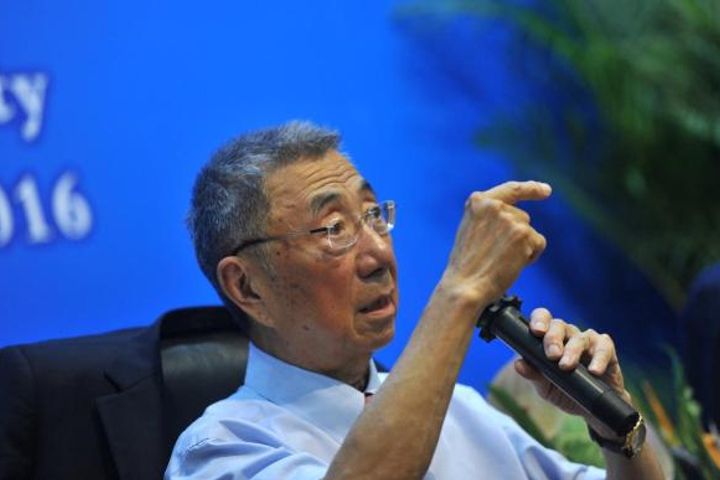 Clues to Dark Matter May Emerge by 2024, Nobel Laureate Foresees
Clues to Dark Matter May Emerge by 2024, Nobel Laureate Foresees(Yicai Global) Oct. 19 -- Samuel Chao Chung Ting, the leading scientist of the Alpha Magnetic Spectrometer (AMS) project, and the research team he leads are likely to find clues to dark matter in the universe by 2024, state-run Xinhua News Agency reported.
Ting made the remarks at the US National Aeronautics and Space Administration's (NASA) Johnson Space Center in Houston, Texas, the US on Oct. 17.
NASA held a premiere for a documentary before Ting's speech in tribute to him. It relates how Ting managed to help take the AMS into space after various vicissitudes.
Two accidents and funding shortages 10 years ago prompted NASA to cancel further shuttle flights. The AMS seemed set to drop off the shuttle manifest until, at this parlous juncture, Ting outlined the critical importance of using the AMS to explore the origin of the universe at a US congressional hearing and successfully persuaded both the Senate and House of Representatives to pass his proposal by a unanimous vote, thus underpinning his research with law.
NASA added a Shuttle flight dedicated to this project. The Space Shuttle Endeavour made its last trip into space and brought the AMS to the International Space Station on May 16, 2011.
The AMS project Ting heads up is the first large-scale precision physics experiment conducted in space. Some 60 research institutions from 16 countries including the US, China and Russia are participating in the project, whose primary goal is to explore dark matter in the universe and their origin.
Over 100 Chinese scientists took part in the project and greatly contributed, Ting told Xinhua News Agency. For example, they made its permanent magnet, a core component, he said.
Dark matter emits no light or electromagnetic wave, does not interact with electromagnetic radiation and existing tools cannot directly observe it. It is believed to be widely present in the universe, but no solid evidence of dark matter's existence has yet come to light.
The AMS has so far detected 100 billion cosmic rays, with energy of 1 trillion electron volts. Their measurement results are also consistent with dark matter models. "More data need to be collected," Ting said. "However, we will have corresponding measurement results by around 2024. They are very likely to be consistent with dark matter models.
Ting is a Chinese-American scientist with roots in Rizhao, Shandong province. He is currently a professor at the Massachusetts Institute of Technology, a member of the US National Academy of Sciences and a foreign academician of the Chinese Academy of Sciences. He was awarded the Nobel Prize in Physics in 1976 for discovering the J article.